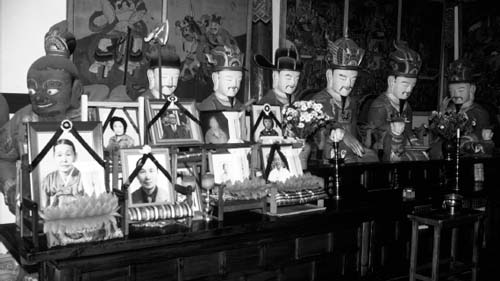Confucianism, the Literati, and Chinese Imperial TraditionsCustoms and Rituals |
Are there Confucian rituals or beliefs around marriage and family life? |
Confucian tradition—Chinese tradition in general, really—teaches that marriage is meant to perpetuate the extended family rather than to create new small social units, all going their separate ways. Marriages arranged by matchmakers have long been the rule, complete with elaborate astrological calculations to assure cosmic compatibility. The equivalent of a dowry from the groom’s parents means the bride has been bought from her family of origin. When young Chinese marry in the traditional way, the new couple virtually fuse with the husband’s family of origin. As long as an older male survives in the groom’s family, the groom and his wife own no property. Most striking of all, perhaps, is that the bride no longer makes ritual offerings to her own family, but only to her husband’s ancestors. Young married couples have historically felt enormous pressure to produce a male heir for the family. Traditional Chinese marriage rituals have not generally been considered “sacramental” as in some other traditions. Nor is marriage a purely civil matter, for the family is the custodian of the sacred in Chinese tradition.

Though much of the imagery here is largely Buddhist in origin, the practice of memorial services for deceased loved ones (note the photographs on the altar) testifies to the pervasive influence of Confucian tradition throughout Asia: Judgment Hall in a popular Buddhist temple, Pong Won Sa in Seoul, South Korea. The bodhisattava Chi Jang (not visible here, known as Jizo in Japan) rules over the realms of the next life, along with the Ten Kings of the Underworld whose images are arranged around the right and left sides of the room and who function as judges.
